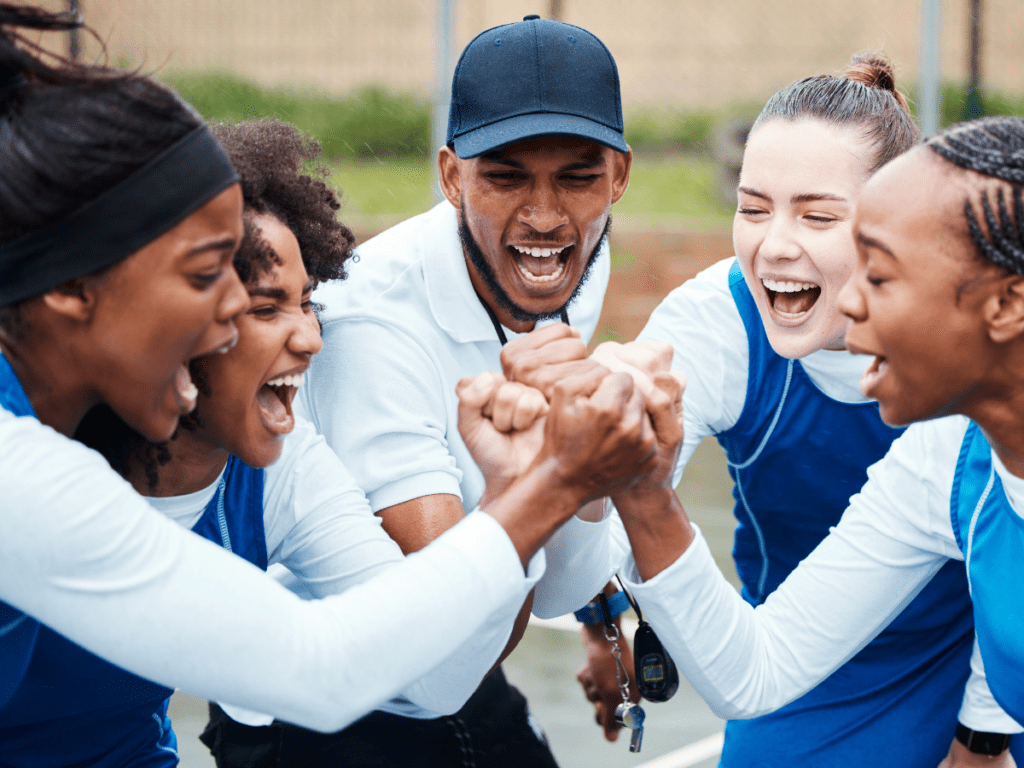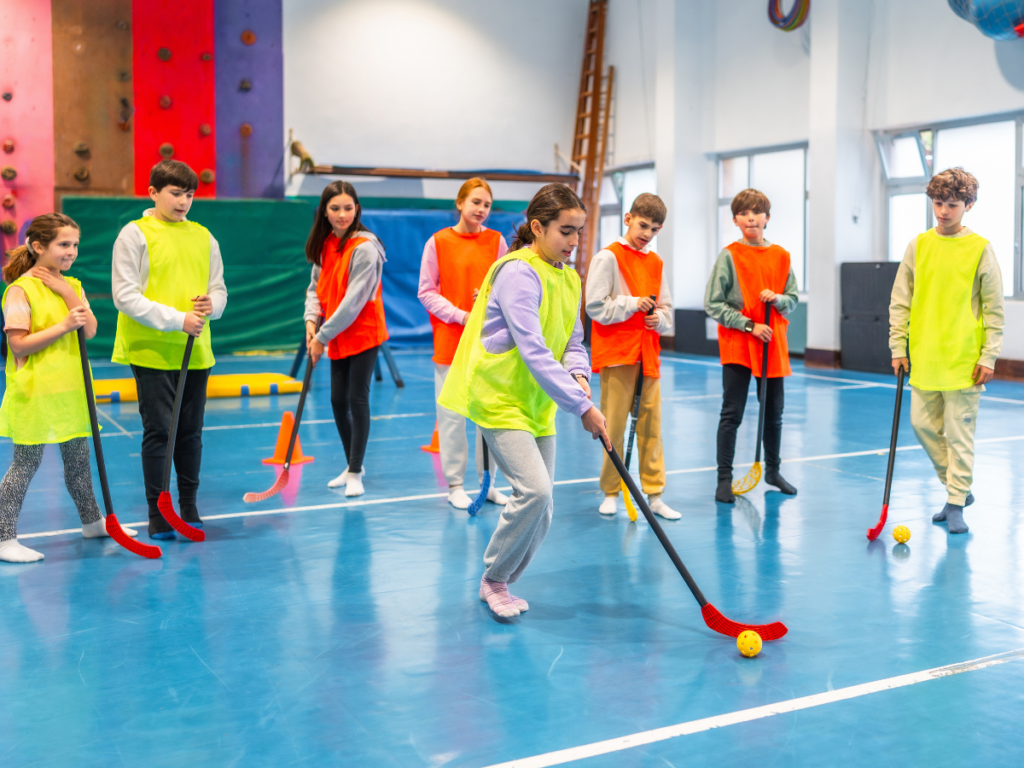
Mentorship is a powerful resource with the potential to positively influence the growth and success of people in sport. Mentoring is a relationship where one or multiple mentors (i.e., a senior person in age or experience) provide guidance and support to one or more mentees (i.e., individuals seeking new knowledge and experience) to improve career development (Ensher et al., 2003; Newby & Heide, 2013).
Extensive research reveals its significant impact on athletes, coaches, students in sport-related fields, sport personnel, and sport leaders. Also, individuals from marginalized groups have unique experiences and challenges in sport and may have even more to gain from effective mentorship as athletes, coaches, or in other sport roles. However, particular elements are essential to ensure the effectiveness of mentoring initiatives.
This blog dives into ‘who’ can benefit from mentoring, ‘what’ the benefits are for those individuals, and ‘how’ sport organizations and higher education institutions can establish effective mentoring programs.

Who can benefit from mentoring and what are the benefits?
Summary of the benefits
Mentoring offers numerous advantages that ultimately contribute to both personal and professional growth. In fact, mentoring is crucial for learning and skill development, which allows mentees to get valuable insights and expertise. The mentor-mentee relationship also serves as a source of informational, emotional, and social support for mentees. Mentoring also facilitates communication and improves relationships, which helps create a collaborative atmosphere. As mentors share their knowledge and experience, mentees gain valuable insights into career advancement, positioning themselves for success. That’s why the benefits of mentoring can extend far beyond professional development, encompassing holistic development and lifelong learning.
A. Athletes
- Enhanced performance (Hoffmann et al., 2017);
- Contributed to personal development (Hoffmann et al., 2017);
- Facilitated successful career transitions (DeFreese et al., 2021; Hallmann et al., 2020; Park et al., 2023).
B. Coaches
- Enhanced knowledge acquisition (Alexander & Bloom, 2023; Douglas et al., 2018; Fairhurst et al., 2017; He et al., 2018; Lepage et al., 2020; McCarthy, 2020);
- Improved skill development (Fairhurst et al., 2017; Lepage et al., 2020);
- Built confidence (Alexander & Bloom, 2023; Koh, 2020);
- Helped overcoming challenges (Leeder et al., 2022).
C. Students in sport-related fields
- Motivated doctoral students in athletic training, contributed to their career planning, created opportunities for their future career, and increased their knowledge and skills in research (Singe et al., 2019);
- Positively influenced sport psychology students’ employment options and developed different skills (i.e., communication, rapport building) (Fogaca et al., 2018; Ransdell et al., 2018; Watson et al., 2009).
D. Sport personnel
- Enhanced professionalism, competence, and work-life balance in female athletic therapists (Eason et al., 2014);
- Reduced stress in newly certified athletic trainers (Walker et al., 2021);
- Allowed candid discussions between sport officials about various topics such as mental health (Tingle et al., 2021).
- Contributed to retention of sport officials (Titlebaum et al., 2009).
E. Sport leaders
- Provided opportunities, facilitated career advancement and supported and prepared women in leadership roles in professional sport (Cosentino et al., 2021);
- Provided psychosocial support among women administrators in the NBA (Picariello et al., 2023).
Increasing diversity, equity and inclusion through mentorship
Mentorship can be a valuable tool for supporting the development of people from marginalized groups across a variety of roles in sport, including people who are gender-diverse, racialized, Indigenous, new to Canada, or live with a disability. For example, mentorship programs for women athletes, coaches, and leaders in sport have long been recognized as a way to enhance gender equity, with benefits like improved communication, conflict resolution, and career development opportunities (Banwell et al., 2019; Picariello et al., 2023; Swim et al., 2022). Likewise, mentorship programs have been shown to have benefits for Black student-athletes, coaches, and directors. These benefits include providing informational, emotional and social support, as well as leadership development (Bimper, 2017; Carter & Hart, 2010; Joseph & McKenzie, 2022; Singer & Cunningham, 2018). The benefits of mentorship, including support, relationships and personal and professional development, have the potential to increase the number of people from marginalized groups working and participating in the sport sector. Increasing diversity, equity and inclusion has benefits for everyone, from role modelling an inclusive culture and norms for the younger generation to increased creativity and innovation on the playing field, or in the board room.

What leads to effective mentoring?
Mentorship alone does not guarantee benefits for either the mentee or the mentor. Effective mentoring relationships are needed to produce positive outcomes. Research shows that effective mentoring is grounded in a strong mentor-mentee relationship, built on mutual respect and open communication (Sandardos & Chambers, 2019). Mentees also generally prefer to be paired with a mentor who has a similar personality to the mentee. Same-gender mentors could also be an important aspect of mentoring, especially for women, where evidence showed improved outcomes when the mentor and mentee shared the same gender (Swim et al., 2022; Wasend & LaVoi, 2019; Watson et al., 2009). Mentors’ attributes such as being a guide, a supporter, a challenger as well as being trustworthy and genuine seemed to be important for developing a fruitful mentoring relationship (Carter & Hart, 2010; Hancock et al., 2017; Sandardos & Chambers, 2019; White et al., 2017). Finally, the effectiveness of mentoring was further underscored by the mentors’ experiences not only in their professional roles, but also in their lived experiences in sport (Donoso-Morales et al., 2017).
Practical recommendations
Sport organizations and higher education institutions can draw the following practical recommendations for implementing effective mentoring programs:
- Develop strong mentor-mentee relationships: Emphasize open communication and mutual respect to establish meaningful connections. For example, organizations could establish dedicated time slots to facilitate regular meetings between mentors and mentees.
- Paying attention to the pairing process: Foster an environment where mentors can better understand the backgrounds and challenges of their mentees. Organizations could match mentors and mentees based on factors such as gender or shared life experiences. One approach could involve conducting surveys with both potential mentors and mentees to gather relevant information about their backgrounds and preferences.
- Build mentors’ attributes: Encourage mentors to develop strong communication skills, embrace emotional intelligence, and offer constructive feedback. For example, organizations could provide specialized training sessions or workshop designed for developing mentors’ skills.
- Prioritize mentors with experience: Select mentors who not only bring substantial experience and expertise in their professional roles, but also possess rich lived experiences that would significantly contribute to mentees’ development. Organizations could consider developing a comprehensive selection process that evaluates both the mentor’s professional expertise and lived experiences. This could involve implementing a thorough interview process designed to capture the depth and breadth of the mentor’s background.
Conclusion
Mentoring is a powerful resource in the sports sector, contributing to the holistic professional development and success of athletes, coaches, sport personnel, students in sport-related fields, and marginalized individuals, as well as their personal development. As discussed, the benefits of mentoring can provide considerable effects, fostering the improvement of knowledge and skills, facilitating career advancement, developing leaders, and mitigating turnover rates. By embracing mentoring and implementing effective mentoring programs, the sport sector can create a positive, collaborative environment that ensures the highest standard of care for athletes and facilitate continuous learning and growth for all members involved.